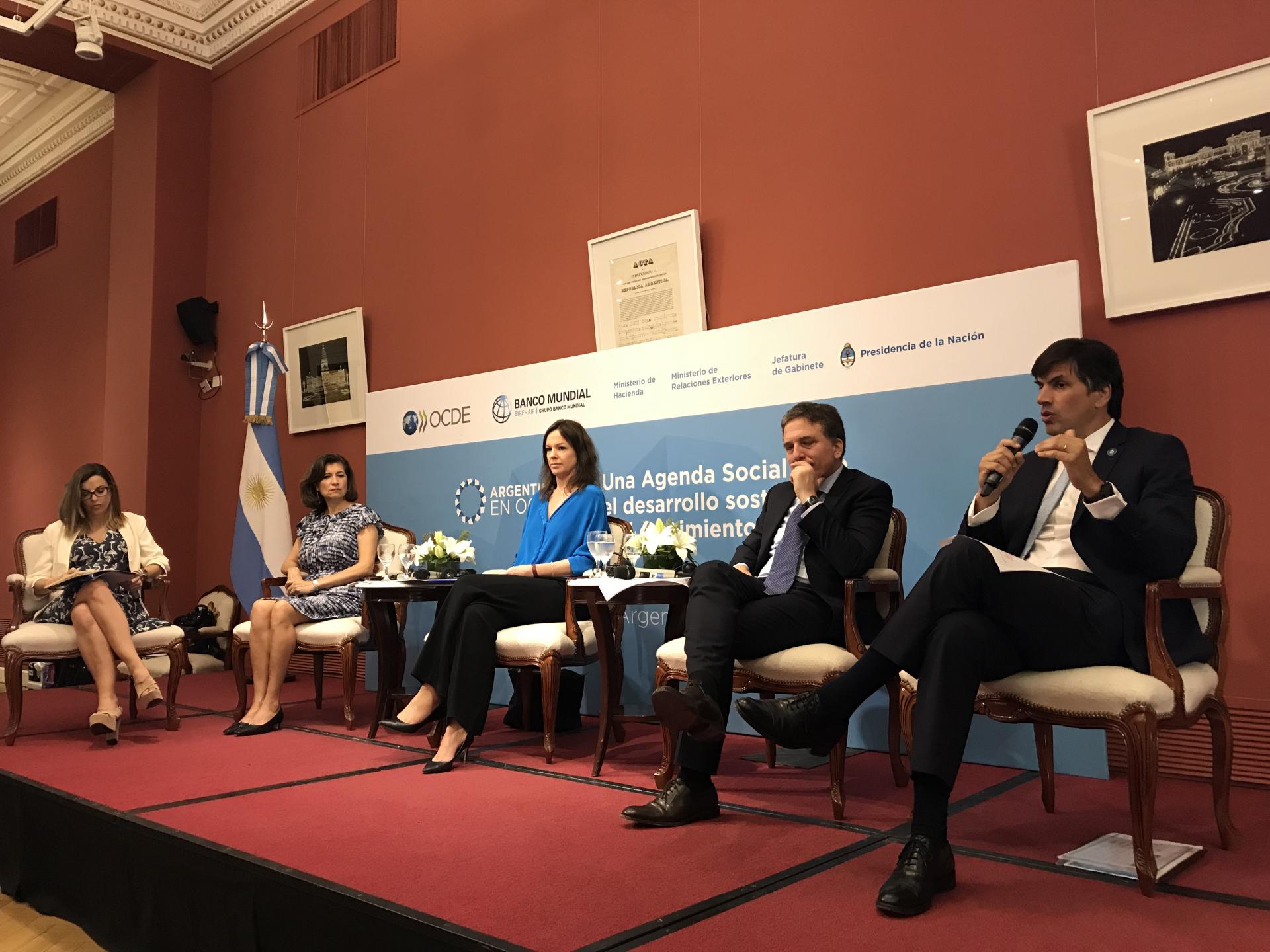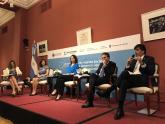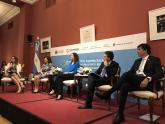The Secretary for International Economic Relations of the Foreign Ministry, Horacio Reyser, underscored today at the Argentine House of Government that Argentina's OECD accession process is strongly connected with the policy of smart insertion into the world that Argentina has been carrying out since December 2015, as exemplified by the policies and reforms being undertaken with a long-term view.
Reyser participated today in one of the panels of the "Argentina in the OECD" International Forum, together with the Minister for Social Development, Carolina Stanley; the Minister of Economy, Nicolás Dujovne, and the OECD Chief of Staff, Sherpa to the G-20 and Special Counsellor to the OECD Secretary-General, Gabriela Ramos.
The Secretary explained that within the framework of Mercosur "we are currently negotiating trade agreements with countries accounting for 40% of the world's GDP," adding that "28 of those countries are OECD members." Reyser made reference to the negotiations with the EU, but also to those "with Canada, New Zealand, and probably Australia, in addition to the EFTA, South Korea and Mexico, and, ultimately, with the Pacific Alliance, in order to achieve a higher level of trade."
"There is a link between these negotiations and the OECD accession process, as negotiating a free trade agreement nowadays is not just about market access and tariff reductions. Modern trade agreements comprise nearly 15 chapters, essentially with the same names as the OECD committees: digital economy, environmental policies, competition, fisheries, trade, gender equality, among others. Therefore, if our standards are similar to those of OECD members, we will be able to reach agreements more easily and with fewer barriers," he stated.
For his part, Dujovne underscored that "the OECD can prove helpful for our reform programme," as our reforms "are in agreement with OECD's best practices."
"The main opposition political parties are also in favour of Argentina's accession to the OECD," Minister Dujovne stated and informed that "we have been invited to be a member of the Nuclear Energy Agency of the OECD and there is much room for mutual cooperation."
For her part, Carolina Stanley underscored that "economic growth is true growth only if it is coupled with social growth. Economic development has to be inclusive, on the understanding that every Argentine deserves and needs equal opportunities."
Furthermore, the Minister for Social Development stated that "we have decided to ground our social policy on three main pillars." In this regard, she stated that "the State has to guarantee that households have at least a minimum income and we have made progress on this issue by extending the Universal Child Allowance," and underscored that "in addition to responding to the social emergency, we need to establish a path to actual integration and inclusion. This is why we strongly work on infancy and early childhood." Stanley explained that "the third pillar refers to dignity, that is, not only measuring poverty in terms of income, but by adopting a system that takes into consideration multiple factors, as we understand that poverty is caused by several factors and that is how it is measured in the world. Decent living entails access to public services. All basic services have to be secured for the people in our country, and we are working towards that goal," the Minister stated.
Finally, Reyser stated at the Forum that President Macri's message regarding efforts to achieve competitiveness and sustained development and create jobs "was very clearly conveyed to the world" and in order to achieve those goals "we need to be a transparent and reliable country, with clear rules."
Established in 1961, the OECD has 35 member countries and its mission is to promote best practices in public policies that will improve the economic and social well-being of people around the world.
Press release No. 522/17
Press Office: 4819-7375 / 8296 / 7388
@CancilleriaARG



